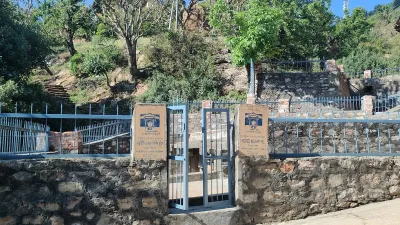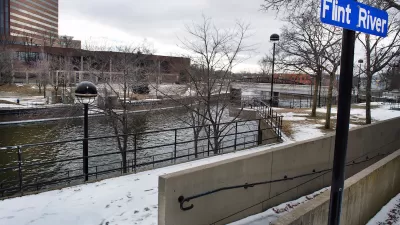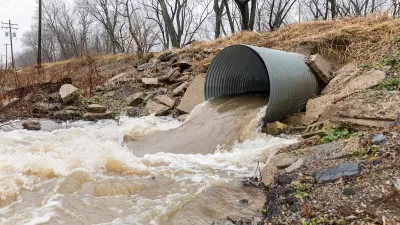David Sedlak, author of "Water 4.0: The Past, Present, and Future of the World's Most Vital Resource," explains how the deepening obsolescence of our water infrastructure is reaching crisis status.
Brad Plumer provides insights into the current state of water infrastructure in the United States and around the world by sharing the work of author David Sedlak, the director of the Institute for Environmental and Science and Engineering at the University of California, Berkeley.
Plumer argues that cities around the United States about to face "a fourth major water crisis," following crises during the Roman Empire, the Industrial Revolution, and the United States in the 1970s.
Sedlak identifies three pressures on current water infrastructure precipitating the next crisis:
- "First, when we built all this water infrastructure, we didn't think hard enough about creating a system to fund its upkeep, maintenance, and replacement. We had a federal grant system to build these treatment plants, but needed to set aside money to rebuild them."
- "Many sewer systems are becoming overloaded"
- "Water scarcity in drought-prone areas"
Sedlak admits that there is no silver bullet to addressing the looking crisis, but also argues that the first obstacle to overcome in finding long term solutions is to convince policy makers to invest in the water infrastructure before it's too late.
FULL STORY: Our cities' water systems are becoming obsolete. What will replace them?

Maui's Vacation Rental Debate Turns Ugly
Verbal attacks, misinformation campaigns and fistfights plague a high-stakes debate to convert thousands of vacation rentals into long-term housing.

Planetizen Federal Action Tracker
A weekly monitor of how Trump’s orders and actions are impacting planners and planning in America.

San Francisco Suspends Traffic Calming Amidst Record Deaths
Citing “a challenging fiscal landscape,” the city will cease the program on the heels of 42 traffic deaths, including 24 pedestrians.

Defunct Pittsburgh Power Plant to Become Residential Tower
A decommissioned steam heat plant will be redeveloped into almost 100 affordable housing units.

Trump Prompts Restructuring of Transportation Research Board in “Unprecedented Overreach”
The TRB has eliminated more than half of its committees including those focused on climate, equity, and cities.

Amtrak Rolls Out New Orleans to Alabama “Mardi Gras” Train
The new service will operate morning and evening departures between Mobile and New Orleans.
Urban Design for Planners 1: Software Tools
This six-course series explores essential urban design concepts using open source software and equips planners with the tools they need to participate fully in the urban design process.
Planning for Universal Design
Learn the tools for implementing Universal Design in planning regulations.
Heyer Gruel & Associates PA
JM Goldson LLC
Custer County Colorado
City of Camden Redevelopment Agency
City of Astoria
Transportation Research & Education Center (TREC) at Portland State University
Jefferson Parish Government
Camden Redevelopment Agency
City of Claremont





























